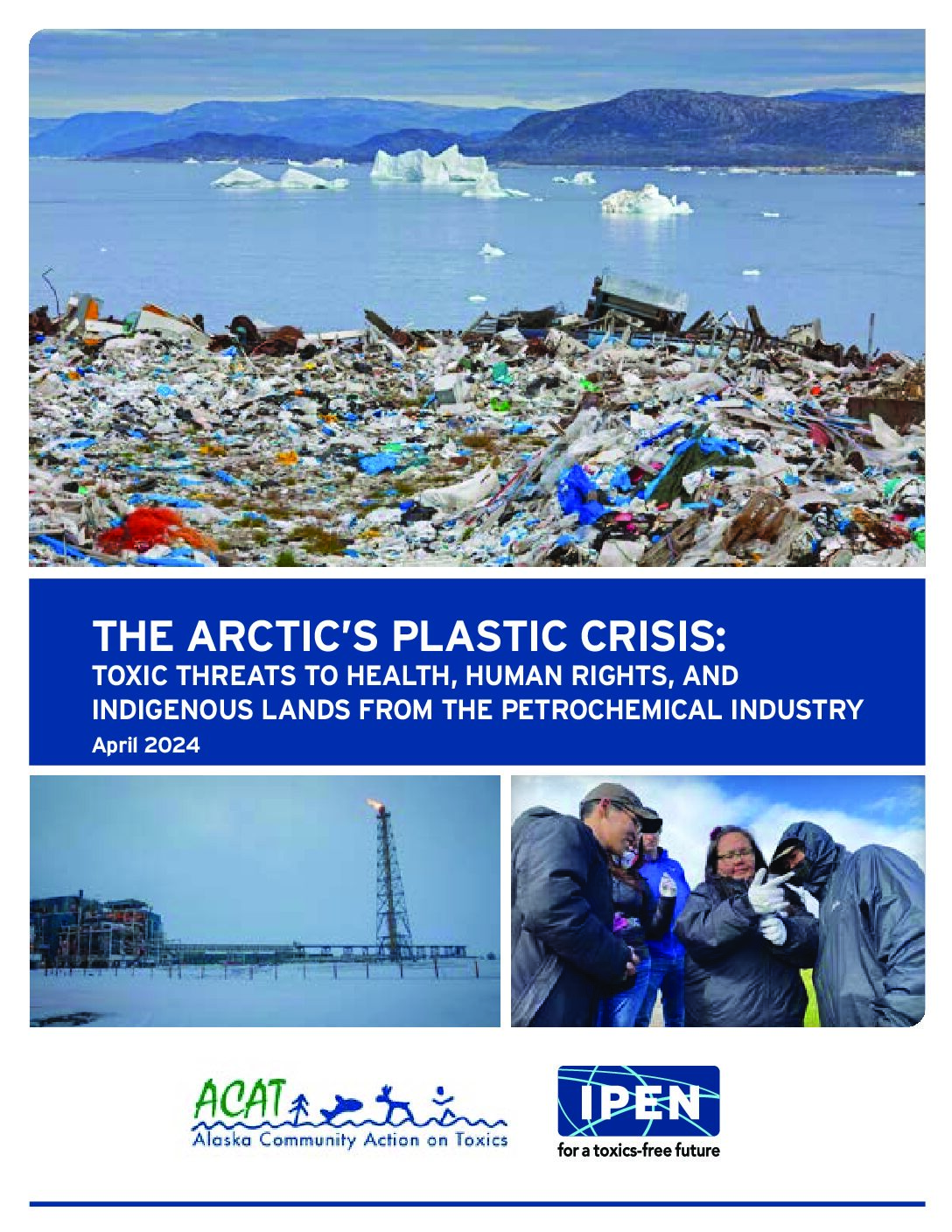The Arctic’s Plastic Crisis: Toxic Threats to Health, Human Rights, and Indigenous Lands From the Petrochemical Industry
About/Abstract
In Alaska and the circumpolar Arctic, the combined effects of destructive extraction of fossil fuels, releases of oil and toxic chemicals associated with exploration and production of fossil fuels, and climate change are harming the health and well-being of communities. Indigenous Peoples’ lands, waters, and health are damaged through exploitation for minerals, oil, and gas, coupled with a rapidly warming climate. Food security, environment, and human health are threatened by climate change and the increasing concentrations of toxic chemicals and plastics accumulating in fish, wildlife, and people from local and global sources.
While distinct and challenging in their own realms, the problems of plastics, toxic chemicals, and climate change are interconnected and attributable to fossil fuel production and use. Almost all plastics are produced from fossil fuels. And the fossil fuel industry is looking to dramatically increase its production of petrochemicals and plastics as the transition to renewable energy lessens the demand for direct combustion of fossil fuels. Meanwhile, the burning of fossil fuels exacerbates the devastating consequences of climate warming, particularly in the Arctic. This region is warming at a rate nearly four times faster than the rest of the world.
This report explains how the Arctic is a hemispheric sink for chemicals and plastics that are transported on atmospheric and oceanic currents from lower latitudes through a process known as global distillation or the “grasshopper effect.” It also summarizes scientific information concerning the association and combined effects of chemicals and plastics in the Arctic that are exacerbated by rapid climate warming, all of which are consequences of destructive exploitation by the fossil fuel, chemicals, and plastics industries. The report
shows how Alaskan communities are laying the groundwork in creating a post-extractive future for the state focused on reconnecting with traditional Indigenous values. Transformational changes are urgently needed from the local to international levels to prevent further harm and to advance solutions. For this reason, we advocate for a Just Transition framework that is specifically oriented toward shifting Alaska and the
world from an extractive to a regenerative economy that fosters healthy, equitable communities. We include recommendations that include the key elements necessary for a strong new treaty on plastics and measures to eliminate harm from the entire life cycle of plastics from production to disposal.
Keywords/Info
Plastic Waste, Plastics and Health, Plastics Treaty, Petrochemicals, Fossil Fuels

